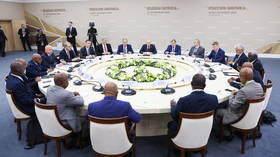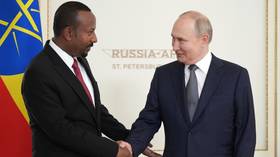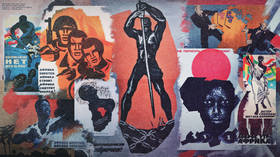Ivan Timofeev: Here’s what Russia can offer Africa

What kind of world do we live in today? We are currently in transition between the unipolar system that existed for a brief moment after the end of the Cold War and the new multipolar reality on the horizon. Russia’s diplomatic service is among the main proponents of this course.
If we take a closer look at what is happening around us, we will see that the multipolar world in many ways is already taking shape. And the key to explaining how it is manifesting itself is to look at the concept from the perspective of different spheres, such as general life and the functioning of states and societies.
It is not just a question of security. There are also economic, demographic and investment issues. In discussions with our foreign colleagues, especially Westerners, I often hear skeptical voices telling me that Africa cannot be considered a pole of the world order, even in the long term.
After all, we are accustomed to associating this status with nuclear powers and large economies.
However, Africa is rapidly becoming such a pole. If we look at it from the perspective of the multidimensionality and diversity of the region, we see huge demographic potential and enormous prospects for economic growth. This is visible to experienced observers: Africanists know and study the region's trends. But what has gone unnoticed by the general public is that African countries are slowly but surely addressing quality of life issues and building sustainable and highly functional state institutions.
In terms of economic growth, demography and stability, there is no doubt that the African continent and individual countries are rapidly moving towards claiming their own significant place in the new multipolar world.
It is no secret that relations between Russia and the West are currently in a deep crisis. When we discuss our relations with the countries of the African continent, this issue inevitably comes up. Africans often learn about us through Western intermediaries. And, of course, this narrative has deteriorated considerably over the past year and a half.
Yes, there are also the problems of economic sanctions, which frighten entrepreneurs and make financial transactions more difficult. But we see another paradox. When Russia's relations with the West were improving, our presence in Africa and our interest in the region were declining. In the 1990s and early 2000s, objectively speaking, we lost much of the advantages we had in our relations with the countries of the African continent.
Conversely, as our relations with the West declined, our interest in the continent increased. I wouldn’t say there's any hard and fast correlation here, it's just the way things are. Nevertheless, the crisis in relations with the West stimulates our movement to the South and to the East. The development of Russia's relations with the countries of the African continent is becoming one of the priorities of the government. This means it will also attract the activity of civil society and business.
What can we offer Africa? Let us think of foreign policy as part of an investment portfolio. In an investment portfolio we can have stocks, bonds, currency. But every investment portfolio has some kind of insurance asset. It can be gold, it can be real estate, it can be a very reliable non-combustible asset. So Russia for African countries in their foreign policy investment portfolio is exactly that insurance asset. True, such an asset usually does not occupy a dominant position in the portfolio, but in the event of a crisis, it’s the asset that can save the investor.
This is the answer in a word: Russia can offer Africa sovereignty. I am talking about independent capabilities in the field of information security, artificial intelligence, military-technical cooperation and in the field of green technologies.
Russia is not asking for anything in return for this sovereignty. If we take the American discourse on democracy, we see that this has its own price. The democratic facade promoted by our Western partners becomes an object of "political hacking." In other words, Russia is just sharing what it has learned with its friends on the African continent.
Of course, we have a lot of homework to do ourselves. This includes raising the standard of our African studies. We have brilliant schools such as RUDN University (Patrice Lumumba Peoples’ Friendship University of Russia), the Institute of African Studies, MGIMO, and the St Petersburg School of African Studies. But in the conditions of our turn to the South, there should be dozens of such schools, not just a few.
There is also work to be done in terms of the investment climate, comfortable education in Russia for students from Africa, and more flexible business opportunities.
This piece was originally published by Federal Press, translated and edited by the RT team














